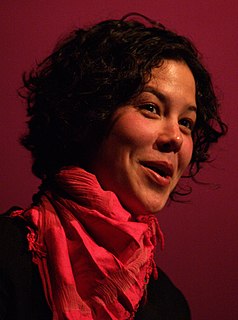A Quote by Joseph Bruchac
The Trail of Tears should teach all of us the importance of respect for others who are different from ourselves and compassion for those who have difficulties.
Related Quotes
Compassion asks us to go where it hurts, to enter into the places of pain, to share in brokenness, fear, confusion, and anguish. Compassion challenges us to cry out with those in misery, to mourn with those who are lonely, to weep with those in tears. Compassion requires us to be weak with the weak, vulnerable with the vulnerable, and powerless with the powerless. Compassion means full immersion in the condition of being human.
Compassion begets compassion, cruelty begets cruelty. What we give we will ultimately receive. Nonhumans help make us human. They teach us respect, compassion, and unconditional love. When we mistreat animals, we mistreat ourselves. When we destroy animal spirits and souls, we destroy our own spirits and souls.
We are not saints yet, but we, too, should beware. Uprightness and virtue do have their rewards, in self-respect and in respect from others, and it is easy to find ourselves aiming for the result rather than the cause. Let us aim for joy, rather than respectability. Let us make fools of ourselves from time to time, and thus see ourselves, for a moment, as the all-wise God sees us.
We have limited time in our life, therefore we should try to teach ourselves, not to teach others. We should conquer ourselves, rather than conquer others. Whether coming or going, standing, sitting or lying down, our mind should be focused in this way. If we practise like this and develop mindfulness continuously, wisdom arises quickly and this is a fast way of practice.
As Gandhi wisely points out, even as we serve others we are working on ourselves; every act, every word, every gesture of genuine compassion naturally nourishes our own hearts as well. It is not a question of who is healed first. When we attend to ourselves with compassion and mercy, more healing is made available for others. And when we serve others with an open and generous heart, great healing comes to us.
In our concern for others, we worry less about ourselves. When we worry less about ourselves an experience of our own suffering is less intense. What does this tell us? Firstly, because our every action has a universal dimension, a potential impact on others' happiness, ethics are necessary as a means to ensure that we do not harm others. Secondly, it tells us that genuine happiness consists in those spiritual qualities of love, compassion, patience, tolerance and forgiveness and so on. For it is these which provide both for our happiness and others' happiness.
But compassion is a deeper thing that waits beyond the tension of choosing sides. Compassion, in practice, does not require us to give up the truth of what we feel or the truth of our reality. Nor does it allow us to minimize the humanity of those who hurt us. Rather, we are asked to know ourselves enough that we can stay open to the truth of others, even when their truth or their inability to live up to their truth has hurt us.
Traveling through the world produces a marvelous clarity in the judgment of men. We are all of us confined and enclosed within ourselves, and see no farther than the end of our nose. This great world is a mirror where we must see ourselves in order to know ourselves. There are so many different tempers, so many different points of view, judgments, opinions, laws and customs to teach us to judge wisely on our own, and to teach our judgment to recognize its imperfection and natural weakness.
In fantasy stories we learn to understand the differences of others, we learn compassion for those things we cannot fathom, we learn the importance of keeping our sense of wonder. The strange worlds that exist in the pages of fantastic literature teach us a tolerance of other people and places and engender an openness toward new experience. Fantasy puts the world into perspective in a way that 'realistic' literature rarely does. It is not so much an escape from the here-and-now as an expansion of each reader's horizons.
The essence of love and compassion is understanding, the ability to recognize the physical, material, and psychological suffering of others, to put ourselves "inside the skin" of the other. We "go inside" their body, feelings, and mental formations, and witness for ourselves their suffering. Shallow observation as an outsider is not enough to see their suffering. We must become one with the subject of our observation. When we are in contact with another's suffering, a feeling of compassion is born in us. Compassion means, literally, "to suffer with."
To recognize our bias toward error should teach us modesty and reflection, and to forgive it should help us avoid the inhumanity of thinking we ourselves are not as fallible as those who, in any instance, seem most at fault. Science can give us knowledge, but it cannot give us wisdom. Nor can religion, until it puts aside nonsense and distraction and becomes itself again.






































